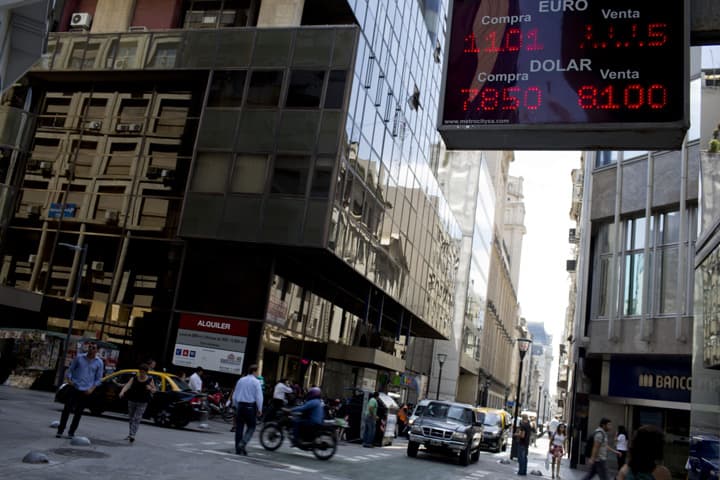Advertisement
'Emerging Markets' Take A Hit
Resume“Emerging markets” around the world — Turkey, Argentina, South Africa, more – were supposed to be the next big wave of economic energy. Now, they’re in trouble. We’ll ask why.

Stock markets have been rocked all over the world in the last few weeks, and not rocked in a good way. Falling down. Japan's Nikkei lost four percent in its last trading day. Wall Street's been sliding. Of course, the Dow Jones was up 27 percent last year. The Nikkei 57 percent. But still, down is down. And the fingers are pointing at emerging markets. Once up-and-comers, now stumbling. Turkey, Argentina, South Africa, more. The U.S. Fed is giving them fits. But there's more to it. Real troubles. This hour On Point: global market slide, and what's going on with emerging markets.
-- Tom Ashbrook
Guests
Mike Regan, editor-at-large for Bloomberg News. (@Reganonymous)
Scheherazade Rehman, professor of international business, finance and international affairs at George Washington University. (@Prof_Rehman)
Ian Bremmer, president and founder of Eurasia Group. Author of "Every Nation for Itself: Winners and Losers In a G-Zero World." (@ianbremmer)
From Tom's Reading List
The Economist: China loses its allure --"For the past three decades, multinationals have poured in. After the financial crisis, many companies looked to China for salvation. Now it looks as though the gold rush may be over."
Wall Street Journal: Gobal Companies Address Latin American Risk — "Drooping currencies in Brazil, Argentina and Venezuela have reduced the value of sales there in dollar terms, while inflation has made it hard for many consumers to afford much beyond necessities. Argentina's heavy government spending and a loose money policy have fueled inflation estimated at more than 25% a year. In Venezuela, inflation is running at more than 50%, and price controls are creating shortages."
Reuters: Weak U.S. data sends dollar, equities lower — "Emerging market stocks extended a two-week selloff as weak Chinese manufacturing and services data weighed, while the Turkish lira and South African rand weakened after policymakers poured cold water on expectations of higher local interest rates."
This program aired on February 4, 2014.